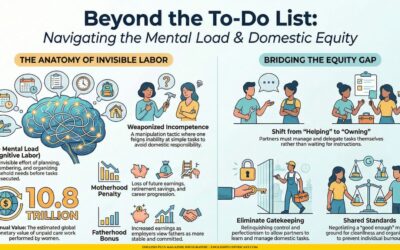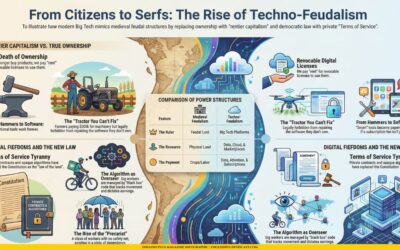In a small city named NeoTown, there was an air of excitement. NeoTown wasn’t just any city—it was known as the “Silicon Valley” of its country, a hub of technological advancements and innovations. But this time, the buzz wasn’t about a new gadget or a software release. It was about something much grander: democracy.
Lena, a tech journalist in her mid-30s, and Nathan, a political science professor, were long-time friends. One day, over coffee at the city’s favorite café, “The Digital Bean,” they started discussing the upcoming elections in NeoTown. This election was unique—it was going to be entirely digitized.
“Nathan,” Lena began, “it’s amazing to think how far we’ve come. From paper ballots and inked fingers to e-voting and blockchain-backed systems. Technology is truly reshaping democratic participation.”
Nathan nodded, “Absolutely, Lena. But it’s more than just e-voting. It’s about information dissemination, political mobilization, and creating new spaces for civic engagement.”
Their conversation mirrored the transformative journey of democratic participation in the digital age.
Technology: A Tool for Greater Accessibility
In the early days of the internet, NeoTown had limited access. But as years progressed, broadband became widespread, and smartphones turned ubiquitous. This democratization of technology meant greater accessibility.
E-voting:
E-voting became a game-changer. The cumbersome process of standing in queues, verifying names, and manual counting was replaced with secure digital systems. Not only did this streamline voting, but it also meant that people with disabilities, the elderly, or those living abroad could participate without barriers.
Empowerment through Information
The digital age wasn’t just about tools—it was about access to information. Before, NeoTown relied on a few newspapers or TV channels for election news. Now, the digital landscape was bursting with diverse sources.
Digital Journalism & Fact-checking:
Lena’s blog, “Tech & Democracy,” was one of many platforms offering in-depth analyses, interviews, and ground reports. The digital age saw the rise of independent journalists and fact-checkers who kept a check on misinformation—an essential service in an era of “fake news.”
Mobilizing the Masses
Nathan recalled the times when political rallies were the primary means of mobilization. “Now,” he said, “we have digital campaigns, hashtags, and even virtual rallies.”
Social Media Campaigns:
Platforms like Twitter, Facebook, and local app “NeoChat” became spaces for political discourse. Politicians interacted directly with citizens, answered questions, and shared their manifestos. Hashtags trended, creating movements and mobilizing support.
Challenges in the Digital Landscape
However, the digital realm wasn’t without challenges. “For all its merits, the online space has its shadows,” Nathan cautioned.
Cybersecurity:
E-voting brought concerns about hacking and vote manipulation. Even though blockchain provided some assurance, the fear persisted.
Echo Chambers & Misinformation:
With personalized algorithms, there was a danger of creating echo chambers, where individuals only heard similar viewpoints. Plus, the speed at which misinformation could spread was alarming.
Lena pondered, “But surely, Nathan, the pros outweigh the cons? More people are engaged in the democratic process than ever before.”
Nathan replied, “Indeed, Lena. But as with any tool, its efficacy lies in how we use it. It’s up to us—educators, journalists, tech professionals, and citizens—to harness this digital revolution responsibly.”
As they left “The Digital Bean,” they realized they were witnessing history. NeoTown was on the cusp of a new era—one where technology and democracy intertwined.
In the weeks that followed, NeoTown saw its most participative election. Voter turnout was at an all-time high. Lena’s blog had record views, with people engaging in constructive debates. The election commission reported the smoothest voting process, all thanks to the digital systems.
And when the results were announced, they were accepted widely, a testament to the transparent and secure processes technology had enabled.
In conclusion, the digital age, with its myriad tools and platforms, is revolutionizing democratic participation. From how we access information to how we cast our votes, technology is making the process more accessible, transparent, and efficient. While challenges exist, the potential for a more engaged and informed citizenry is immense.
NeoTown’s experience serves as a beacon for other cities and nations, illuminating the transformative power of technology in democracy. In this digital age, it’s evident that when technology and democracy converge, the real winner is the people.
Keywords
- NeoTown: A fictional city known for its technological advancements, symbolic of places that embrace modern technology.
- Digitized: Converted into a digital format or processed by a computer.
- E-voting: Electronic voting, a method of voting where people can cast their votes over the Internet.
- Ubiquitous: Being present everywhere or appearing or found everywhere.
- Misinformation: False or inaccurate information, especially that which is spread intentionally.
- Fact-checking: The process of verifying the factual accuracy of information.
- Mobilization: The act of organizing and encouraging a group to act in a particular way or for a particular purpose.
- Manifestos: A public declaration of policies and aims, typically by a political party or candidate.
- Cybersecurity: The practice of protecting systems, networks, and programs from digital attacks.
- Echo Chambers: Situations where beliefs are amplified by communication and repetition inside a closed system and insulated from rebuttal.
Key Takeaways
- Technology has revolutionized democratic participation, making it more accessible and efficient.
- E-voting eliminates traditional barriers, enabling a wider range of citizens to participate.
- The digital age offers diverse sources of information, promoting independent journalism and fact-checking platforms.
- Social media campaigns and digital platforms have transformed political discourse and mobilization.
- While the digital realm offers numerous benefits, it also poses challenges like cybersecurity threats and the spread of misinformation.
- A responsible approach to harnessing technology in democracy is crucial to ensure its benefits are maximized and pitfalls minimized.
Articles on The Story of Democracy
Journey Through Democracy: Origins, Evolution, and The Path Forward (Featured Article)
Direct vs. Representative Democracy: Which Truly Reflects the People’s Will?
Democracy 2.0: How Technology is Reshaping Civic Participation
The Pulse of Democracy: Minorities Seeking Equal Rights and Representation
The Fragile Nature of Democracies: When Governance Takes a Dark Turn










0 Comments